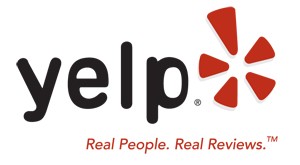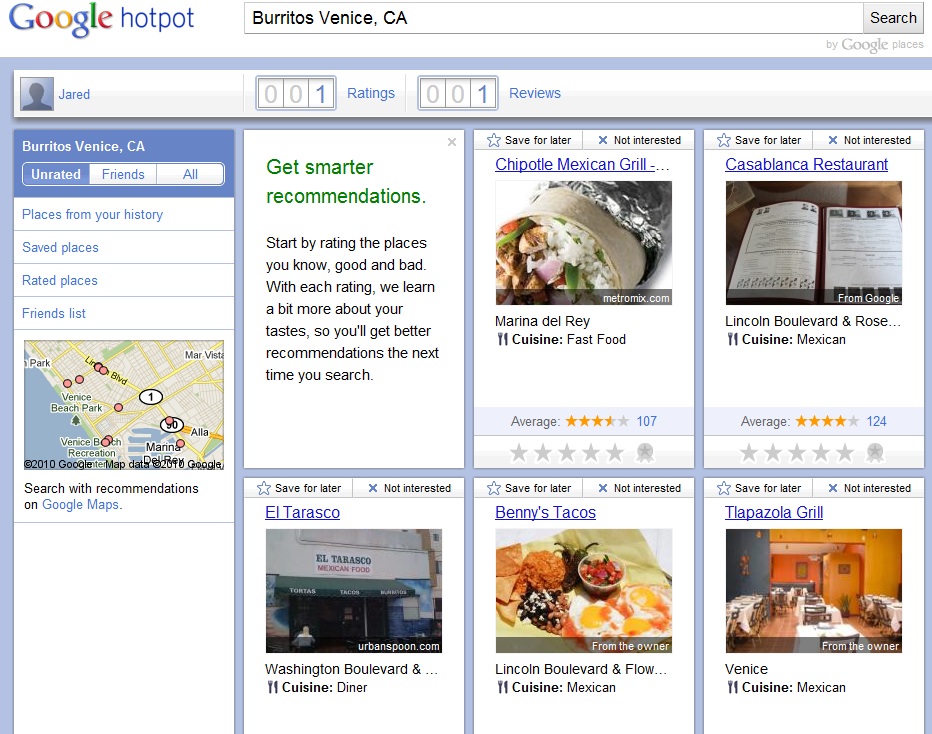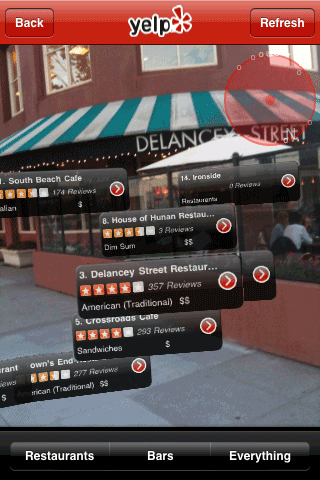 In the battle to tell people where to go and what to eat, Yelp is quickly turning the tables on the incumbent Citysearch.
In the battle to tell people where to go and what to eat, Yelp is quickly turning the tables on the incumbent Citysearch.
TechCrunch’s Eric Schonfeld reports that Yelp’s U.S. traffic has grown 80 percent over the last year, to 8.6 million unique visitors in July. Citysearch is still ahead with 15.4 million unique visitors in July, but it’s not growing.
That spells trouble for Citysearch, because Yelp is only going to get better as more people use the site.
This isn’t a perfect analogy, but I see Yelp as the Wikipedia to Citysearch’s Encyclopedia Britannica. Sure, both sites contain user ratings and reviews, but Yelp is almost entirely powered by them (scandals aside), while Citysearch remains anchored by editorial hands. Visit a restaurant page on Citysearch, and the first description you see will be from “The Editor.” Go to Yelp, and you’ll get snippets of user reviews, highlighting the menu items that are mentioned most.
Yelp’s community focus provides an immediate impression of the business by consensus. Often times, I need only glance at a restaurant review on my iPhone to know if the place I’m standing in front of is worth going inside, and what item is the best on the menu. This experience only improves when more people are contributing to the discussion.
A restaurant reviewer might protest, arguing that consensus is no way to judge a restaurant or business. That’s a valid point, but Citysearch doesn’t provide in-depth reviews, either. (Who is “The Editor,” anyway?) The result is a lack of identity compared to Yelp’s strong sense of community.
Citysearch executive Kara Nortman tells TechCrunch that it’s got some new strategies in store, such as a “neighborhood platform” that will be filled with “trusted content.” I’m not sure what that refers to, but I’m guessing Citysearch will try to pride itself on information that’s more reliable than Yelp’s.
The only problem is that Yelp is growing more reliable every day. I don’t need a trusted advisor to tell me what to eat at a restaurant when there are hundreds of people who are already saying the same thing.
 For a while, Google’s been morphing its local business directory into a Yelp rival, but Google Hotpot is the most obvious offensive yet.
For a while, Google’s been morphing its local business directory into a Yelp rival, but Google Hotpot is the most obvious offensive yet.
 Google Places is getting a kick in the pants with more information delivered automatically in search results.
Google Places is getting a kick in the pants with more information delivered automatically in search results. In the battle to tell people where to go and what to eat,
In the battle to tell people where to go and what to eat,  Augmented reality–the process of
Augmented reality–the process of 
